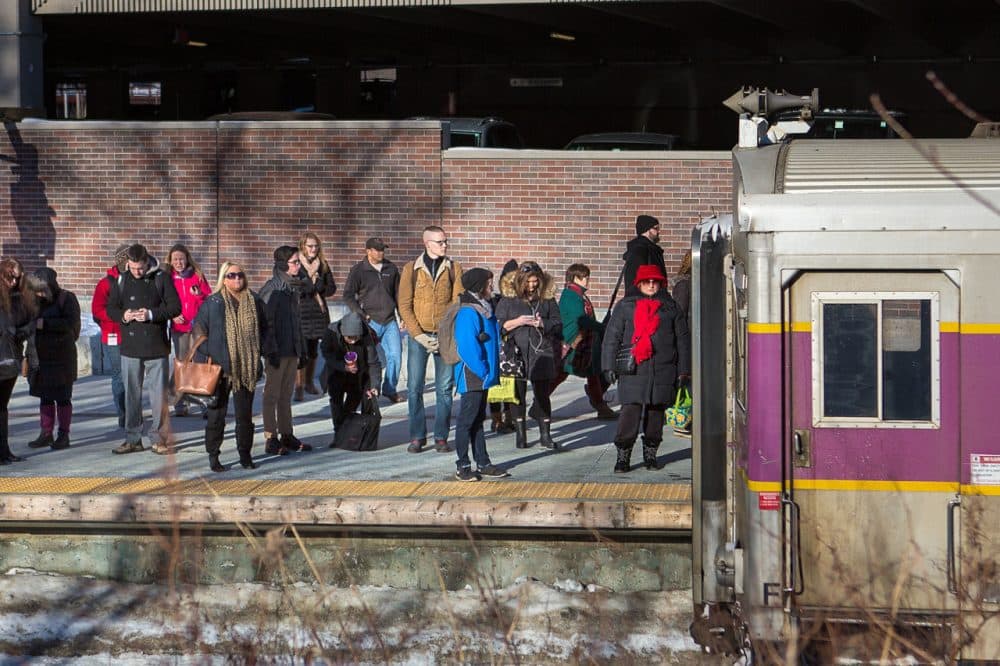Advertisement
Transit Board OKs MBTA Free Fare Day, Pass Discounts In May

The board overseeing the Boston area's beleaguered public transit system voted Wednesday to offer free fares for one day and discounts for monthly pass holders as a goodwill gesture to commuters who endured massive breakdowns during a brutal stretch of winter weather.
Under the two-part plan approved unanimously, cash-paying customers of the Massachusetts Bay Transportation Authority would be able to ride free for one day -- April 24 -- on all modes of transportation including trolleys, buses and commuter rail trains.
The second part of the plan calls for a 15 percent discount on monthly MBTA passes purchased for the month of May.
The total cost to the agency was estimated at $5 million in lost revenue.
The MBTA, the nation's oldest public transit system, was beset by equipment failures during the spate of storms that dropped more than 100 inches of snow on parts of the region during a six-week period starting at the end of January, resulting in delayed and canceled trains on both rapid transit and commuter rail lines. The entire system was forced to shut down for more than 24 hours following one storm.
"The people who used the system experienced extraordinary frustration," said Stephanie Pollack, the state's secretary of transportation and a member of the seven-member MassDOT board.
The goal in compensating riders, Pollack said, wasn't simply about money.
"It's how do we thank our customer and rebuild faith?" she said.
MBTA officials outlined several options for board members last week, ranging from a full week of free fares to offering selected refunds or allowing monthly passes that were purchased for February to be reused in another month.
The system was under no legal obligation to reimburse passengers.
Board members and state transportation officials initially appeared divided on whether to offer some form of compensation. Some believed it would help restore the public's confidence in the MBTA, but others worried about diverting scarce resources that could instead be used to fix deep-rooted problems with the system, or establishing an unwanted precedent.
Advertisement
"This doesn't set a precedent," board chairman John Jenkins said of the plan approved Wednesday. "We're thanking you and we want you back," he said of passengers.
Even some riders were conflicted. James White, a longtime MBTA user from Boston, said he'd prefer to see the agency use available money to fix the system, but he considered the plan approved by the board one that struck the right balance.
"I hope it's going to go a long way in mending some fences with people," said White, who uses a wheelchair.
Gov. Charlie Baker has asked a panel of experts to report back to him by the end of this month on long-term solutions for the MBTA. The agency has also asked officials from other transit systems, including Chicago, Philadelphia and Toronto, to review the T's storm response and compare to how their own systems have handled severe winter weather.
Full service has largely been restored on rapid transit lines, but Keolis Commuter Services, the company that operates the commuter rail system under a contract with the MBTA, has said it might not have all trains operating on schedule until March 30.
The independent Massachusetts Taxpayers Foundation, in a report released Wednesday, said the MBTA's financial and managerial problems were so overwhelming that no relatively simple fix would help. The business-backed group urged lawmakers to hold off on providing more money to the agency until a comprehensive plan was in place to address a widening gap between operating expenses and revenues.
"We know the T is broken, but we don't know just how broken," said the foundation's president, Eileen McAnneny. "We also know that past reform efforts have not brought stability."
This article was originally published on March 11, 2015.